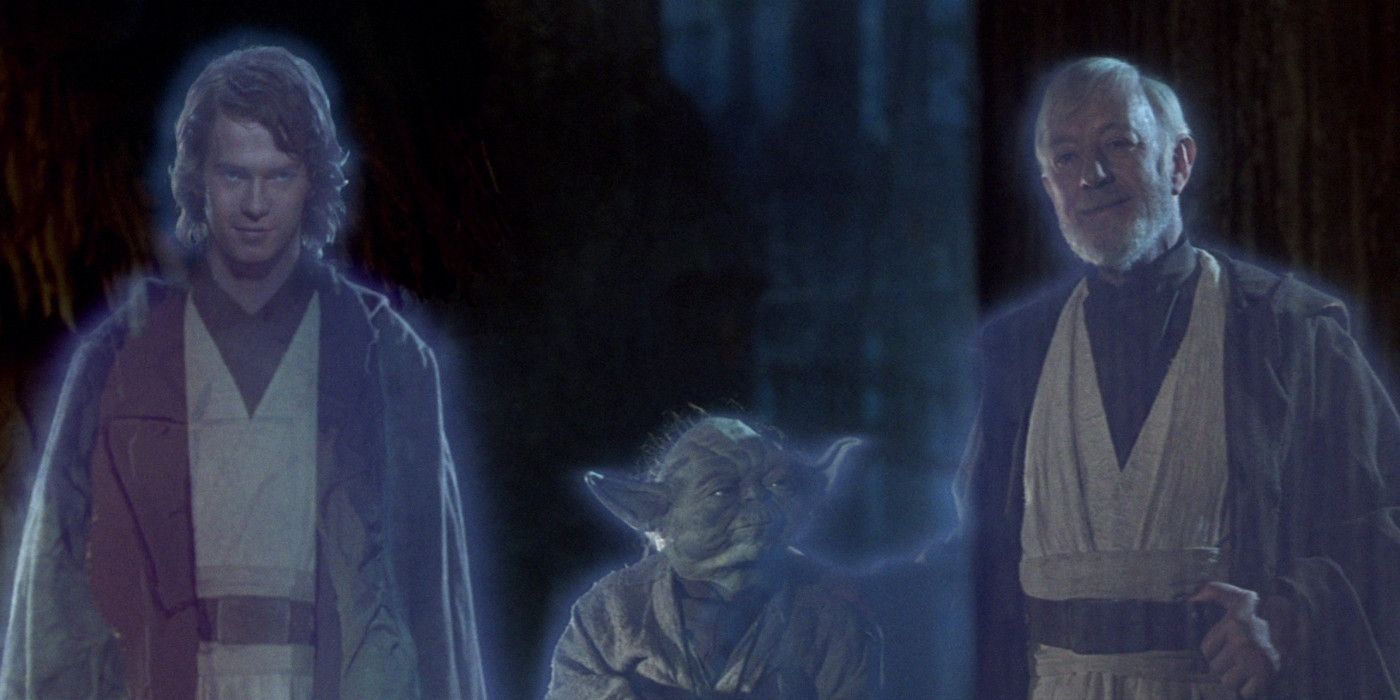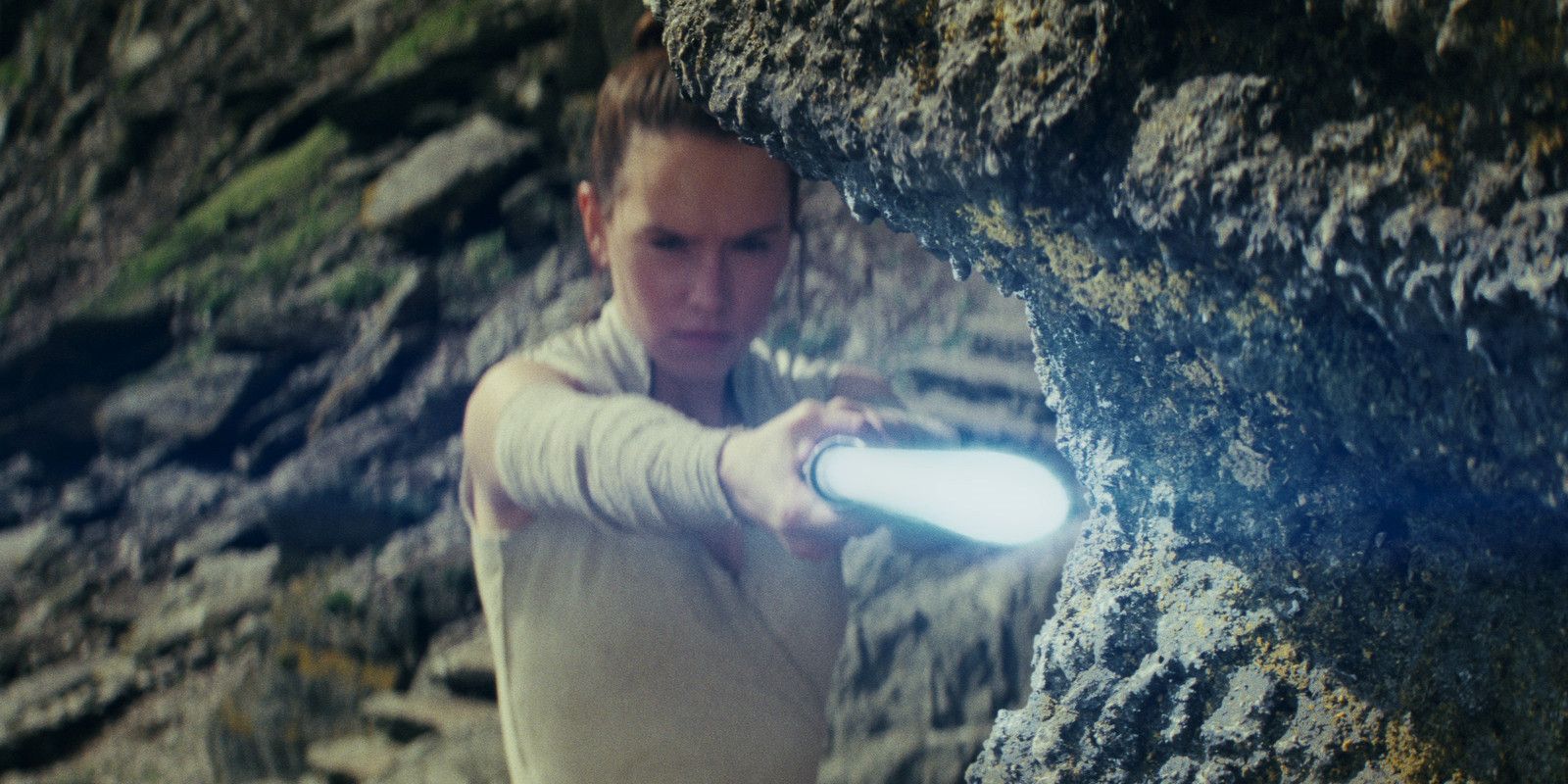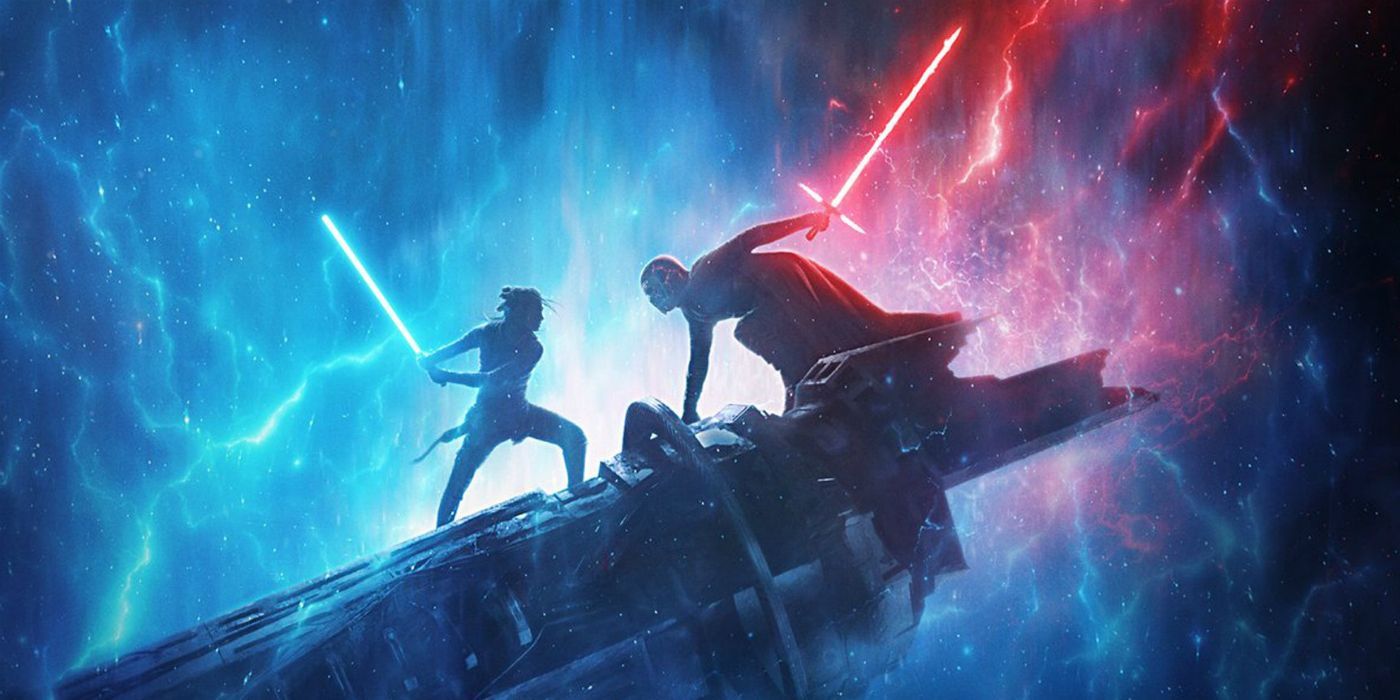
The previous film in the saga, Star Wars: The Last Jedi, was met with a similarly split reaction among Star Wars fans, primarily because of its depiction of Luke Skywalker. In the movie, Luke has abandoned the way of the Jedi Order after almost killing his nephew Ben Solo and accidentally driving him to the Dark Side. Luke at first refuses to teach Rey how to properly use the Force because he believed that the Jedi were incorrect in their teachings and ignorant in their involvement in the creation of Darth Vader.
This depiction of the Jedi Order is a thematic continuation of George Lucas' version of the group in the original and prequel trilogies. While the Jedi believed themselves to be a force for good, their problematic teachings and stifling practices caused them to make several key mistakes. However, Star Wars: The Rise of Skywalker shows Rey seeking out their guidance and wisdom, a decision which misses the point that George Lucas was trying to make all along.

When Luke Skywalker discovers his heritage as the son of a former Jedi Knight, he turns first to Obi-Wan Kenobi, then Yoda, in his search for a master to teach him the ways of the Jedi. And while both of them attempt to impart their knowledge onto him, they both manipulate and deceive him as well.
Obi-Wan, known as Ben Kenobi to Luke, is the first character in the original trilogy to tell Luke about the legacy of the Jedi. He explains to him the purpose of a lightsaber, the connectivity of the Force, and takes the first major steps toward teaching Luke how to become a Jedi Master. However, along the way, he purposefully leaves out some key information in relation to the Jedi and their involvement in the current fate of the galaxy. Specifically, Obi-Wan lies to Luke and tells him that Darth Vader killed his father, instead of telling him the truth that Vader is his father and was swayed to the Dark Side. The fact that he keeps this secret from him is a major violation of trust, and the same type of manipulation and secrecy that alienated Anakin from the Jedi Order in the first place.
Then, in Star Wars: The Empire Strikes Back, Luke is sent to finish his training with Master Yoda after Ben's death at the hands of Darth Vader. Yoda completes Luke's training, but at the same time makes no effort to rectify Ben's mistake and tell Luke the truth of his father's identity. Alongside this, in The Stars: Return of the Jedi, both Yoda and Ben Kenobi (now as a Force Ghost) try and convince Luke Skywalker that his father is beyond saving, and must be killed. Luke wholly rejects this notion, and it's his compassionate plea to the humanity left in Vader that causes him to turn away from the Dark Side and redeem himself. Both Yoda and Ben are blind to the potential for good still left in Vader. These failings of the Jedi teachings are expanded upon by Lucas in the prequel trilogy and Star Wars: The Last Jedi.

In the prequel trilogy, fans get to witness firsthand the events that led to the fall of Anakin Skywalker and the rise of Darth Vader. Anakin is taken in by the Jedi Order from a young age, escaping a life of violence and hardship, but forced to leave his mother behind. The responsibility of his teaching falls on Obi-Wan Kenobi, a recent Jedi Knight himself who's not experienced enough to guide the young Anakin in the ways that he needed. The Jedi Order themselves were also full of flaws and emotionally inhibiting teachings that prevented the healing and growth necessary for Anakin to overcome his trauma.
George Lucas sought to explore the nuance in the Jedi Order and their teachings, and in doing so gave them very specific failings. One of them was their belief that emotions were inherently chaotic, teaching all Jedi to suppress their emotions in various ways. This was a stark contrast to young Anakin, who was filled with rage over the abuse he and his mother had suffered as slaves. The Jedi refused to teach Anakin how to cope with that anger in a rational way, denying him an outlet for it. Another Jedi teaching that negatively impacted Anakin was their antiquated rule against Jedi taking lovers, a rule that Anakin had already broken in secret with Senator Padme Amidala. The Jedi were also frequently secretive about their motives, confusing Anakin with their infantilizing treatment of him. These problems were eventually exploited by Emperor Palpatine, directly leading to Anakin's fall from grace.
Star Wars: The Last Jedi took the prequel's depiction of the Jedi a step further. When Rey goes to Luke on Ahch-To to finish her training, Luke outright refuses her and tells her that he plans to let the Jedi Order die. He cites the fact that their rules allowed Palpatine to seduce Anakin and the galaxy right underneath their noses. While correct, the audience also discovers that Luke turned away from the Force after briefly considering killing his nephew in response to the darkness that he sensed within him. Luke fell prey to the same black-and-white absolutism that plagued his predecessors, and Star Wars: The Last Jedi forces Luke along an arc of acceptance of failure as a teacher, something the Jedi Order never learned.

Star Wars: The Rise of Skywalker starts with Rey seeking guidance from the Jedi of old, and ends with her discovering that wisdom and using it to face off against Palpatine. While it makes sense that Rey would be desperate to know more about the Jedi of the past, the movie's desire to deify them feels at odds with what came before.
Turning the Jedi into a group of virtuous spirits that Rey can summon for help whenever inadvertently sanitizes their legacy. The Jedi, despite their good intentions, weren't entirely perfect, and some of their actions led directly to the downfall of one of the most powerful Force users ever. Star Wars: The Rise of Skywalker also uses them in stark opposition to Palpatine's declaration that he is "all of the Sith," once again painting the Jedi and the Sith along absolutist lines of good and evil instead of the nuance that George Lucas desired for the franchise.
Episode 9 attempts to please fans by giving them a simplified idea of what "classic" Star Wars should be, starting with returning the Jedi to the heroes that they're treated as within the actual universe. However, by doing this, the movie retroactively weakens one of the most consistent thematic points within the franchise, which is the moral failings of the Jedi. By trying to paint the Jedi Order as the traditional "good guys" of the franchise, Star Wars: The Rise of Skywalker simplifies one of the most complex and layered elements of George Lucas' story.
from ScreenRant - Feed https://ift.tt/37iclqC





No comments: